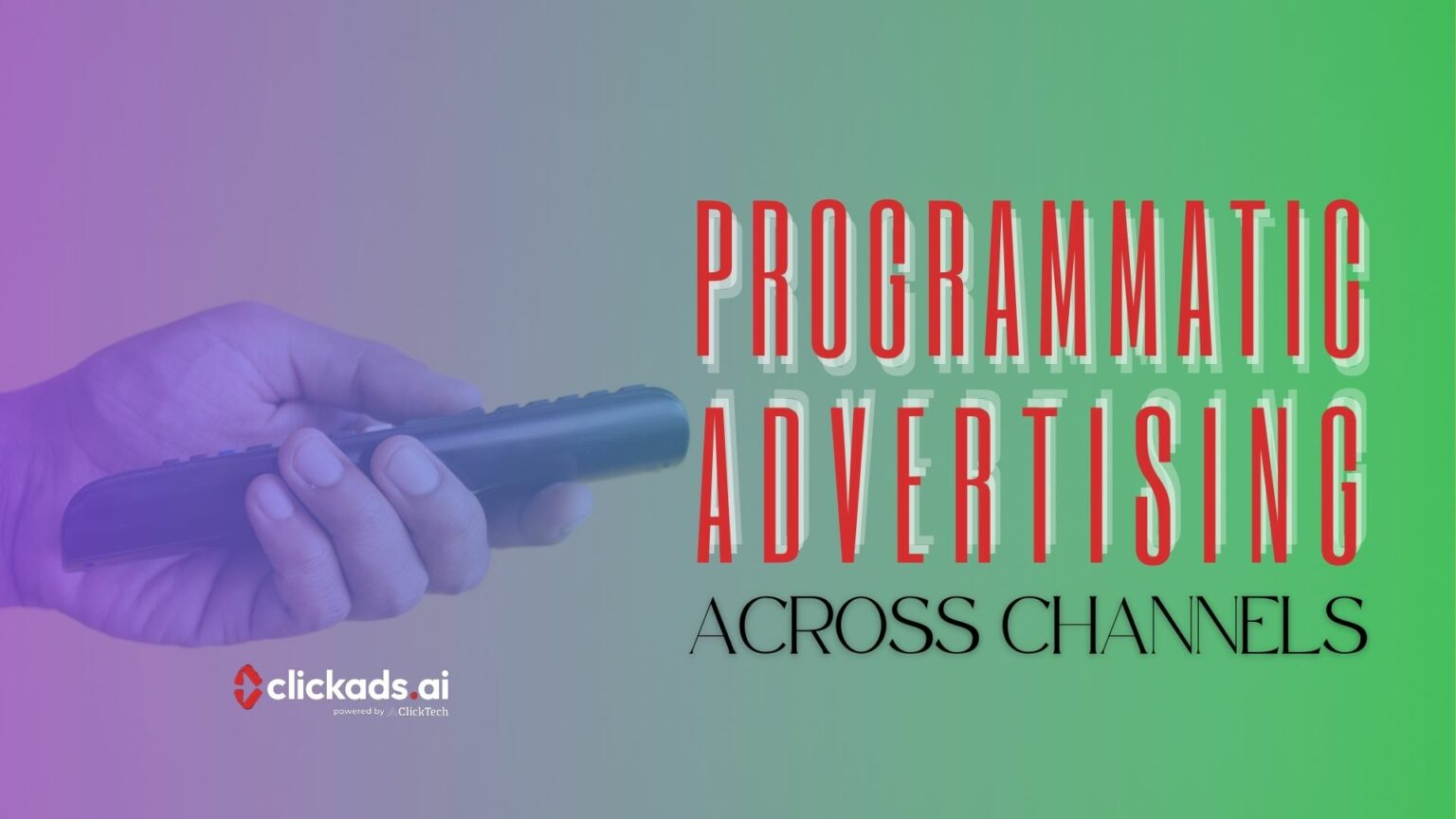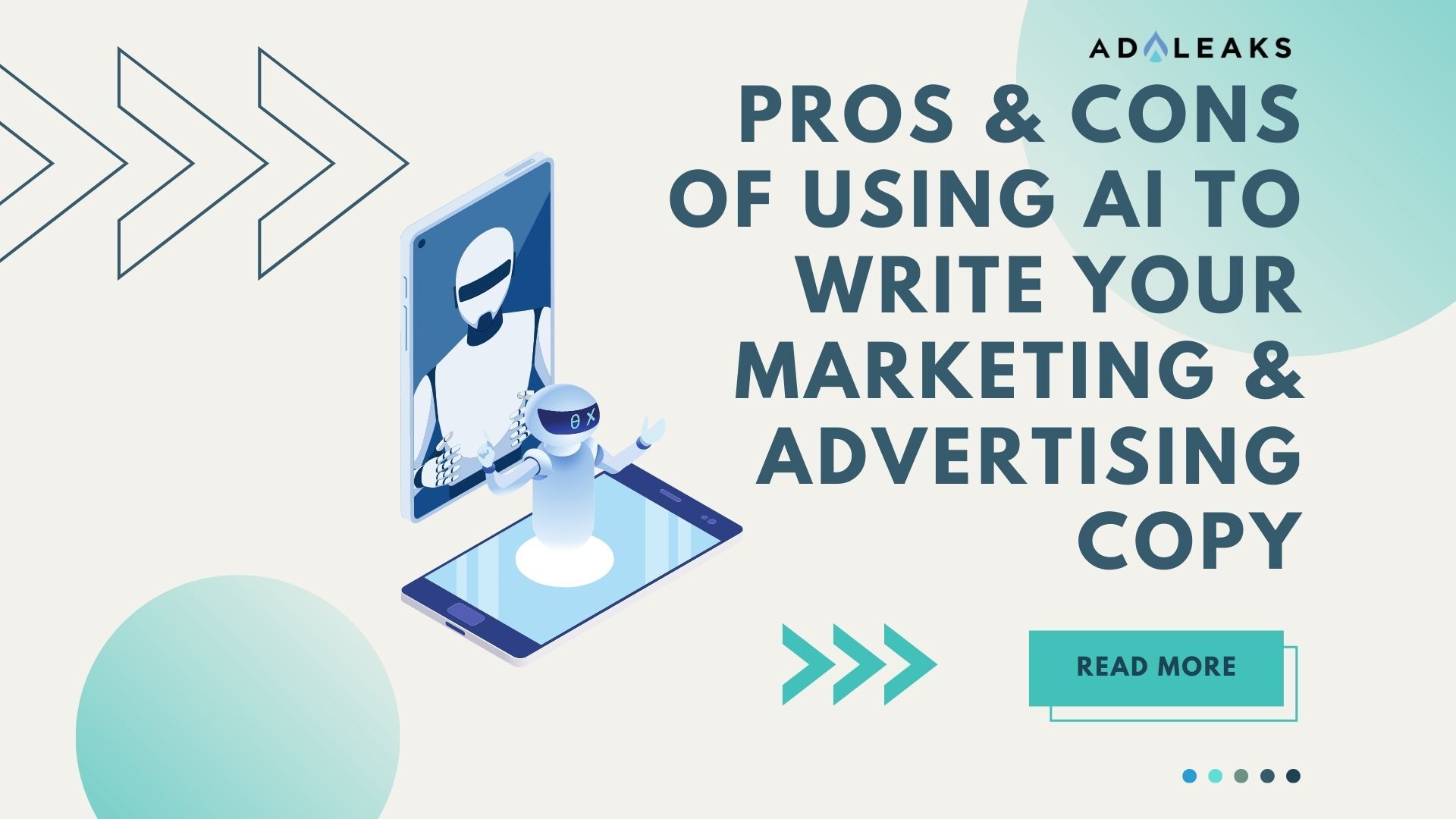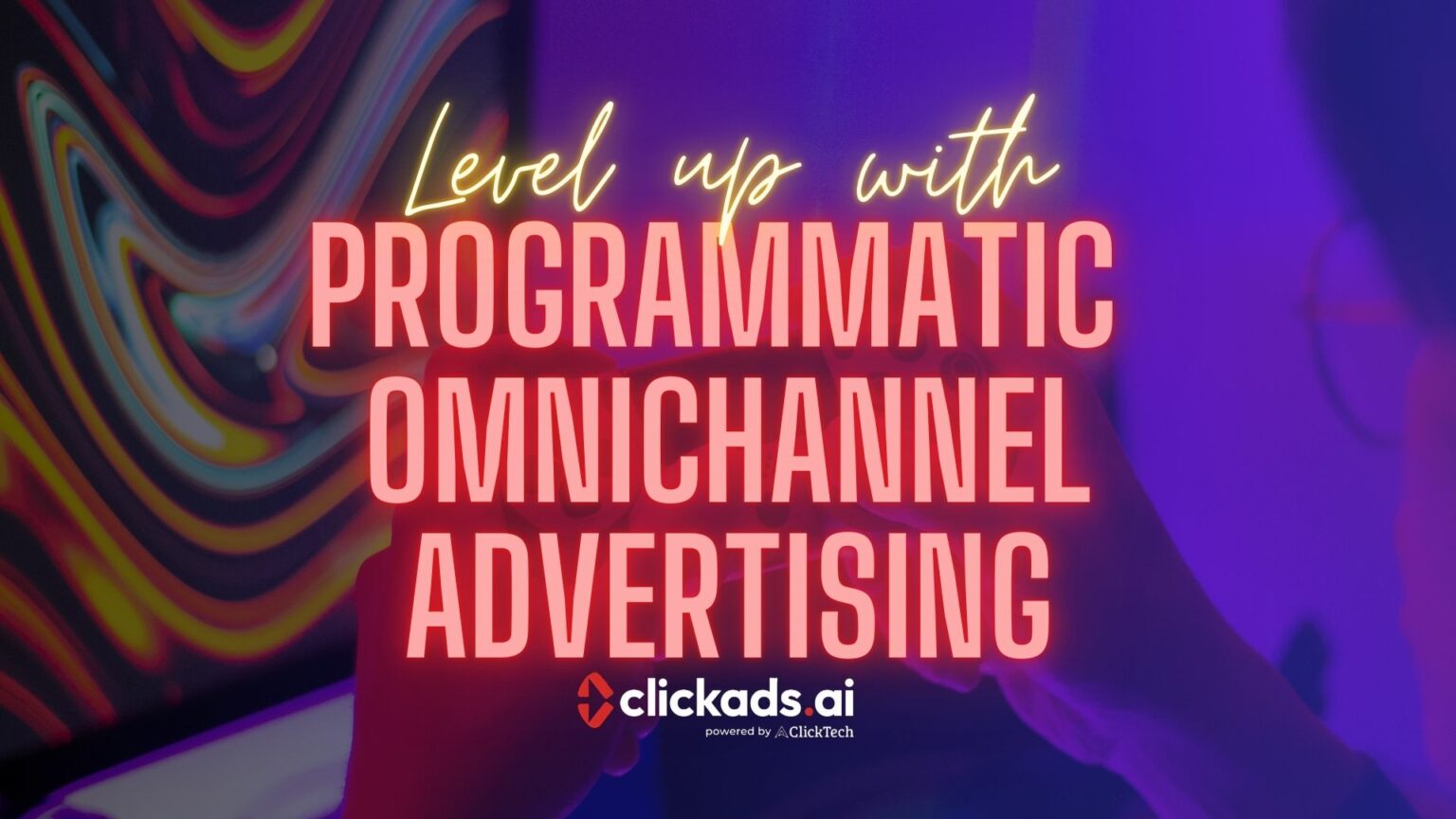
Pros & Cons of Using AI to Write Your Marketing & Advertising Copy


Digital marketers and eCommerce merchants need to communicate effectively with their audiences to generate leads, produce sales, and keep the lights on. But producing marketing and advertising copy that converts can take days of brainstorming and weeks of tests and revisions to get the results you want.
To overcome this obstacle, some agencies and advertisers are turning to artificial intelligence (AI) and machine learning programs to produce copy for ads, websites, social media posts, and more.
This might seem like an obvious win for overwhelmed ad buyers. But while there are benefits to using this technology for copywriting, there are a few drawbacks as well.
What is AI?
Artificial intelligence, broadly speaking, is the science and technology behind computer programs that are able to do tasks and solve problems that usually require human intelligence.
By using these advanced systems, advertisers and marketers are at the core of a seismic evolution in the way people engage with the world around them.
Also, AI is already being used throughout the advertising and marketing industries, and marketers are excited to reap more benefits by leveraging the latest tools.
Not only can AI make their jobs easier, but targeting their message to the correct audience is practically seamless.
Further, now that copy AI tools are in the marketing mix, agencies have a new way to promote their offerings, for online retailers to meet sky-high demand, or for innovative brands to attract analytically minded, tech-savvy writers.
Although AI’s entrance into the marketing and advertising writing world seems beneficial, it is not always embraced by those who encounter it.
The turnaround time may be quicker but not as efficient, for example, and while it might replace some human work, the emotional highs and lows in an ad might lack authenticity.
Turnaround Time May Be Quicker but Not as Effective
AI-generated content applications use machine learning algorithms to generate original copy based on inputs provided by a human. That input can be a topic headline, a keyword, a tone of voice, and/or a short text prompt.
Based on this information, AI creates copy quickly and efficiently. In turn, this process minimizes the time writers need to spend producing original copy, and assets are delivered much quicker.
The smartest marketing approaches will incorporate AI copy but only in places where it will have the best outcome.
For campaigns that require underlying strategic planning and carefully composed messages, a professional copywriter will always be necessary for quality control. But in instances where bias needs to be removed, for example, or multiple assets need to be replicated immediately, AI is a useful tool.
Using AI Doesn’t Necessarily Replace Human Creativity
Not every business has the resources to hire a copywriter full-time or outsource to an agency, so AI might be the best solution in those cases.
AI-powered technology also can be used to provide a second point of view. You can use it to offset or counter potential human errors, which may be introduced by factors like fatigue, inexperience, bias, attention deficit, or emotion.
Google is also helping AI to move to the forefront of writing. The Analytics Intelligence feature in your Google Analytics account uses machine learning to help you better understand your website’s results and act upon them.
With this advanced technology at the forefront of the digital world, it is beyond any doubt that these writing machines perform much more efficiently as compared to human beings.
In other words, AI has the ability to replace some jobs, but human brainpower will always be a marketing necessity, especially in advertising and other creative industries.
The Emotional Highs and Lows Might Lack Authenticity
Artificial Intelligence is extremely beneficial for specific uses, like automated customer support chat scripts, but might lack the ability to reach emotional highs or lows in an ad. A great ad writer who knows the market inside and out will connect with an audience through stories and relationship building.
This is why we find it important that copywriters have knowledge of your product or service and that they have solid relationships with your target customers. A writer can reach the emotions of their audience through a creative style of writing where AI might fall short hence not keeping up with the competition.
As much as we see AI entering our daily lives in many different ways, marketing copy might not be one we are ready to hand over to Artificial Intelligence quite yet.
What We’ve Learned About Using AI
Automated writers work 24/7 to provide you with high-quality, plagiarism-free texts. However, when handed over to bots the texts become instantly recognizable for their unnatural tone and language patterns.
That’s why it’s important for you to do your research before jumping on that bandwagon: ask for samples, reviews, and references about their processes, so that you can determine whether digital marketing is an effective text generator for your needs or not.
Looking for more information about pros & cons of using AI? Click here to join AdLeaks now!

